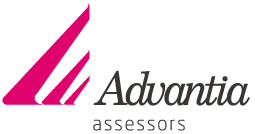From 1 September, Law 9/2019 of 7 February on social security, amending Law 17/2008 of 3 October, came into force. This law affects all people conducting self-employed activity in Andorra.
Who is considered “self-employed” in Andorra?
Those who are considered freelancers or individuals who conduct self-employed economic activity are:
- Individuals with an authorisation to practise a self-employed profession with a qualification, if the qualified individual is on the Census of Employers, Professionals and Withholders. If said profession is carried out exclusively as a salaried employee, they would not be considered as self-employed.
- Owners of an establishment or business that carries out effective activity, or of an agricultural or livestock farm whose output is intended for commercialisation. In both cases, participation in the civil society or joint ownership regime is included.
- Administrators of active companies who fulfil any of the following requirements:
o They are not salaried employees of the company of which they are administrators.
o They receive remuneration on a periodic or non-periodic basis, whether fixed or variable, for performing their role as administrator. If the administrators carry out their activity free of charge but do not contribute to social security as directly insured persons, they are also included.
o They have legal residency in Andorra that requires coverage and health insurance that is not connected to Andorran Social Security. In such cases, individuals with residency that does not include lucrative activity, residency for professionals with international presence, or residency for reasons of scientific, cultural and sporting interest are excluded.
- Family members of the individual who conducts self-employed economic activity in the Principality of Andorra. Said persons will be excluded if they are salaried employees of this natural person or of their company, provided that they carry out applicable activity at the company or family farm.
- Individuals who have a sharecropping agreement.
What has changed with regard to contributions?
The new law establishes that the calculation of the contributions of self-employed individuals is based on two parameters: net income derived from economic activity and turnover. In 2019, the two parameters will be calculated according to the results from the 2018 financial year (and thereafter in accordance with the results from the immediately preceding year).
The most important change is the introduction of more contribution brackets, based on the aforementioned parameters. Self-employed individuals will be able to benefit from reduced CASS contributions of 25%, 50%, 62.5% or 75%; pay the base contribution (100%); or they must contribute 125% or 137.5%. The contribution percentages will depend on their specific situation calculated from the income and turnover of the business.
Special reduced contribution for entrepreneurs under the age of 35
Until now, the basic type was 100% and it was necessary to submit a written application to the CASS to benefit from any of the reduced contribution bases. Under the new regulations, self-employed individuals must declare their circumstances to the CASS. This body will then assign the corresponding contribution, based on the net income and turnover of the economic activity carried out by the self-employed individual.
If you have any questions about preparing your tax declarations, contact Advantia Assessors. We have a team of tax advice professionals who will be at your service to make your life easier.



